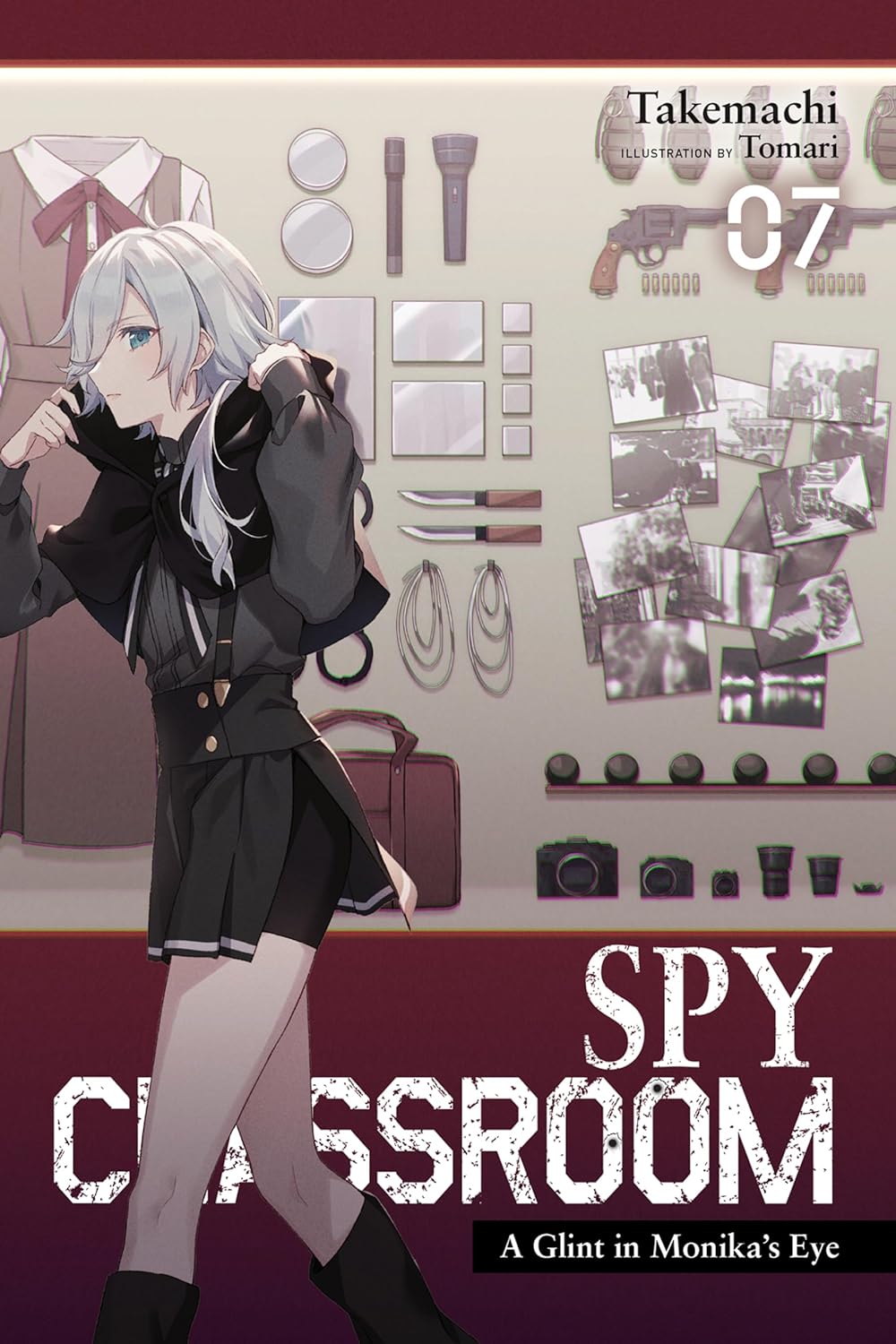By Takemachi and Tomari. Released in Japan as “Spy Kyoushitsu” by Fujimi Fantasia Bunko. Released in North America by Yen On. Translated by Nathaniel Thrasher.
Generally speaking a large chunk of fiction, especially fiction written for drama and starring teenagers, revolves around one major problem: the entire plot would not happen if only the characters would communicate with each other. Talking solves the problem, so we have to prevent that, either by character flaw or by authorial fiat. Fortunately, this new volume of Spy Classroom does not have that problem. Oh, sure, things are very bad and Monika is very much not talking about it. But, as the volume goes on, we come to realize that, at least if Monika is going to act in a way that’s true to herself, she cannot talk about this. As it would involve sacrificing a friend. Or a team. Or a country. Unfortunately, that’s very bad news for literally everyone else in the cast. Including most of the bad guys. And Monika, who by the end of the book is not quite suicidal, but close. Wacky fun times are absent here.
We pick up right at the cliffhanger ending of Book 6, with Monika betraying Lamplight. She breaks Thea’s arm, beats up Erna, puts Annette in the hospital, and kidnaps Grete. She’s teamed up with Green Butterfly, who is, of course, blackmailing her something fierce. Monika, being very clever, quickly realizes that “fake traitor” is not going to work in this case – though that’s not to say that she just completely turns evil – there are plans within plans, as is always the case in these books. Meanwhile, the rest of Lamplight are devastated and upset, but also still dealing with the fallout of the last two books. Can they manage to find out why Monika has betrayed them? And does it even make a difference?
I try to avoid giving away the major surprises in these volumes, and I will in this review as well. But we gotta talk about one, as it’s been around almost since the start, and it goes from subtext to text: Monika is gay, and unfortunately in the suspicious, Cold War-esque world that this takes place in, homosexuality is illegal. And while we’ve been told before that she’s in love with one of the members of Lamplight, here we find out who it is. It’s not too much of a surprise, and of course the enemy uses her as a threat against Monika – which works very well, as the seemingly cold and emotionless Monika has far less experience with feelings of love than anyone else in the group. If you enjoy old-school lesbian angst, with sturm und drang, unwillingness to confess because they’re sure the other party doesn’t love them, and a last-minute “I love you” before Monika gets sent to Super Hell cliffhanger ending’d on us, this is right up your alley.
So the next book should, theoretically, wrap up this arc. Unfortunately, most of the cast is in prison, in the hospital, or presumed dead. The good news is that if you love Lily, Sybilla or Sara, you’re going to have a ball. Sara gets the cover at last, and for once we don’t have a SS volume breaking up up. That said… how are they gonna resolve this?



